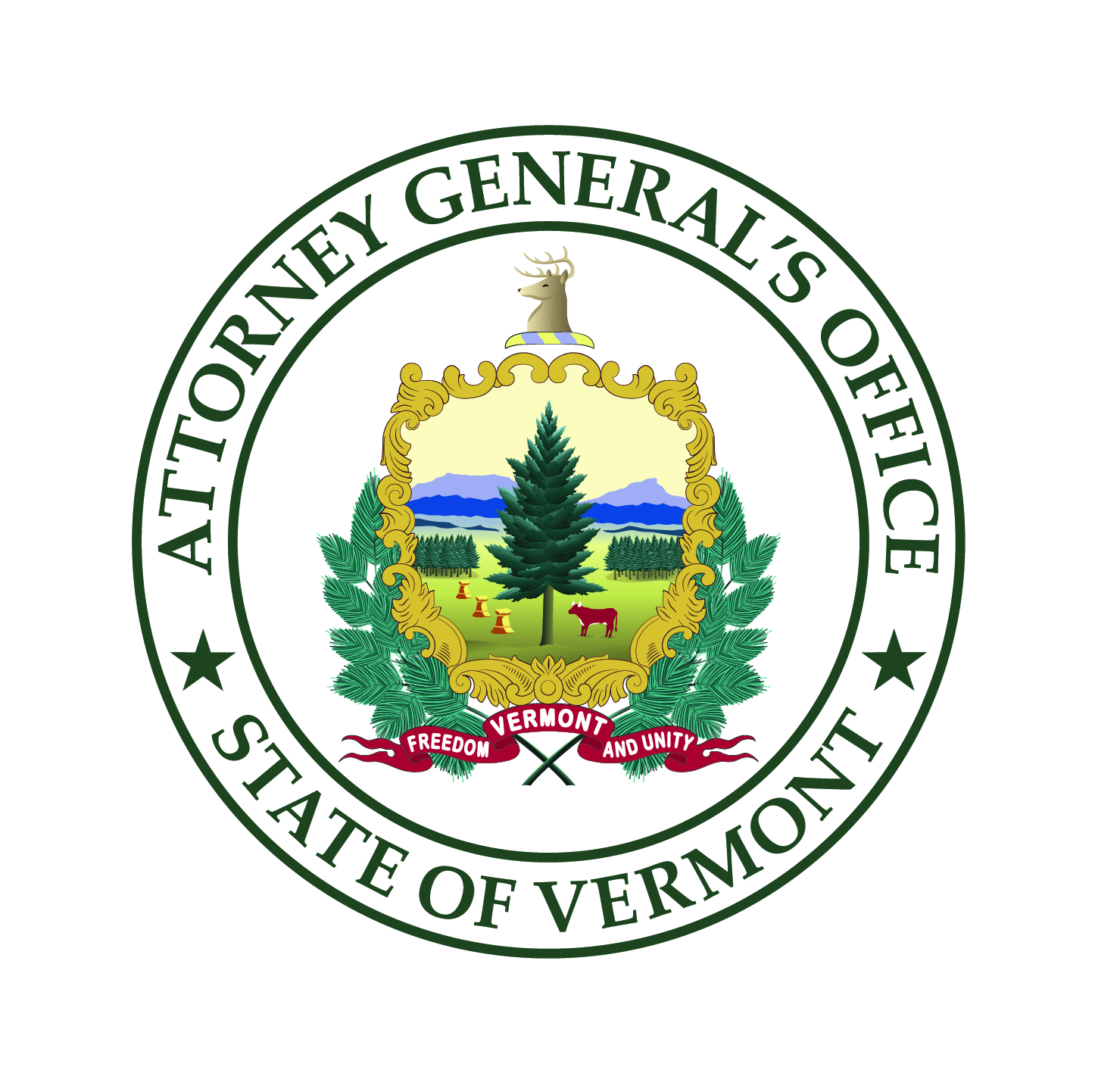Helping Vermonters - we are here for you!
 The Attorney General's Consumer Assistance Program (CAP) at UVM helps Vermont consumers resolve disputes with businesses, protect themselves from fraud and access available services. We:
The Attorney General's Consumer Assistance Program (CAP) at UVM helps Vermont consumers resolve disputes with businesses, protect themselves from fraud and access available services. We:
- operate a consumer hotline for information and assistance
- mediate consumer disputes with businesses
- track fraud and scam complaints and
- recover thousands of dollars yearly for consumers.
Call us! CAP staff and student volunteers are available Monday - Friday, from 8:30am-4:30pm at 800-649-2424
Do you have questions about consumer issues? Find out more about many common issues here:
Stay current with the CAP blog!
CAP Connection, our consumer blog, provides helpful information about current consumer issues and alerts. Follow along!
Automobile Sales, Service and Finance
Avoid car purchase pitfalls:
- Before you sign anything, review the sales contract carefully! Make sure it is the right vehicle, at the price and terms you negotiated. Once you sign a contract, you have committed to purchase the car. There is no time period during which you can return a car once you sign the contract.
- Understand the financing terms! What is the interest rate? How long is the loan for? What are your monthly payments? Does the payment amount change? How much will the loan cost you in interest?
- Check out the seller! Ask your friends, co-workers and neighbors about their experiences. Check the business complaint history with CAP.
- Get it checked out by your mechanic! Have a mechanic you know and trust carefully look over the car and let you know what issues may need to be addressed. Also, having the vehicle looked over by a competent body shop can provide more information about the body repair history.
- Don't rely on vehicle history reports alone! Vehicle history reports can be helpful, but none contain complete records for all vehicles. In fact, many will not even have complete accident and insurance history information. While no current database is complete, the most complete single database is available at http://www.nmvtis.gov/
- Review the warranty! is it "As-is"? An as-is sale means if something goes wrong with the car, even as you are driving home, you may not have any recourse with the dealer to get it fixed.
- Take your time! Don't rush the purchase. Car purchases can be exciting. Take the time to think about it and make sure it is the right car for you.
- Check out CAP's Car Purchasing Guide for more information!
What about the "lemon law"?
Vermont's "lemon law" applies to vehicles that are within the original manufacturer's warranty period (or, in some cases, within a year of the expiration of that warranty). If your vehicle is within the original warranty period and has:
- had 3 or more unsuccessful attempts to fix the same problem, or
- been out of service for 30 days or more
then it may be eligible. There is no additional used car lemon law protection in Vermont. If you believe your situation may qualify, contact Vermont's Motor Vehicle Arbitration Board for assistance.
Car service and repair
At some point, every car will need to be serviced. Whether it is for regular maintenance or a major repair, there are ways to be sure you get the most value for your money.
- Know your mechanic. Do they regularly service cars like yours? Ask people you know about their experiences with the mechanic. You can also contact CAP to request the complaint history for a business you are considering using.
- Get it in writing. A quote for a repair is not a guarantee that the repair will not cost more. There is no law in Vermont requiring a servicer to stick to a quote that is not a signed contract. When you bring your vehicle in for service, be sure to stipulate in writing what services you are authorizing. If you refuse to pay the bill, the mechanic may be able to retain possession of the vehicle until the services are paid for. If the work is unsatisfactory or exceeds the scope of the work you requested, you may wish to file a complaint with CAP, dispute the charge on your credit card, or file a suit in small claims court.
- Ask about the parts and labor costs. Find out what kind of parts they will use, how long it will take and what their labor rate is.
Charities
What is a paid fundraiser for a charity?
A paid fundraiser is someone (not an employee of the charity) who is paid by a charity to conduct fundraising efforts on behalf of the charity. These payment arrangements vary widely. However, under Vermont law, paid fundraisers must report to the Attorney General with information about the campaign and their payment arrangements with the charity.
How do I find out how much of my donation goes to the charity?
To find out more about how your donation is applied when you donate through a paid fundraiser, you can download our paid fundraiser information, sorted by charity name, or by the name of the fundraiser:
For outside “ratings” of charities based on how they use their funds, you can check Charity Navigator or the Better Business Bureau’s Wise Giving Alliance Standards for Charity Accountability.
What does the law require paid fundraisers to do?
Under Vermont’s Charitable Solicitations Law, 9 V.S.A. § 2471 et seq., paid fundraisers for charities must file a “notice of solicitation” with the Attorney General’s Office in advance of each campaign, and a post-campaign financial report; post a $20,000 bond; make specific disclosures when soliciting donations; and comply with charity contract, script approval, donation deposit, record-keeping, and related requirements. In addition, fundraisers and charities are prohibited from making misrepresentations to prospective donors. The Attorney General’s Office is responsible for enforcing the Law. For more information on these requirements and prohibitions, please consult Vermont’s Charitable Solicitations Law and Consumer Fraud Rule (CF) 119.
I'm on the Do Not Call registry, why are they still calling me?
Charitable organizations are exempt from the federal Do Not Call statute. However, you may request to be removed from their calling list. If you are having difficulty with a paid fundraiser, you may also file a complaint with our office.
Are my contributions tax-deductible?
If you intend to give tax-deductible contributions, you should verify an organization's tax filing status with the IRS. Essentially, if the organization is tax-exempt or a 501(c)(3), donations should be tax deductible. There are several ways to check the tax filing status: request to see the organization's IRS tax exemption letter, search for the charity using the "Exempt Organizations" tool on the IRS website, or call the IRS at 877-829-5500.
Debt Collection
What types of debt collection practices are prohibited?
Vermont law prohibits the following practices regardless of whether the debt is being collected by the creditor, an attorney or a third-party collection agency.
- Threats. Debt collectors may not threaten action that they will not or cannot take.
- Harassment. Debt collectors may not harass, oppress, or abuse anyone.
- Unreasonable publication. The law prohibits a debt collector from notifying other people about your debt.
- Deceptive Representations. Debt collectors may not engage in deception in attempting to collect a debt.
- Unconscionable Means. Debt collectors may not use unconscionable methods to collect a debt.
For example, debt collectors may:
- not misrepresent who they are or who they work for.
- not falsely imply the amount of the debt or any legal action that can be taken.
- only contact you between 8:00 a.m. and 9:00 p.m.
- not continually call your phone or harass you. During a phone call, a debt collector must identify him/herself and may not threaten violence against you or your family or use profane language.
- only contact you at work if he or she cannot reach you at home in between 8:00 a.m. and 9:00 p.m.
- not call you more than one time a week at work and must stop calling you at work if you tell the debt collector not to contact you at work.
If you receive a suspicious debt collection call:
- Always ask the debt collector to provide you with written documentation that substantiates the debt they are trying to collect; and
- Contact the original creditor and ask whether the debt has been paid. If it has not, confirm that the debt was sold to a third party collector and verify the identity of the debt collector.
How do I stop the contact from the collector?
Under federal law, if the collector is a third party collection agency, you may send the agency a Cease Contact letter, requesting that they no longer contact you regarding the debt. Alternatively, you may instruct them only to contact you by mail, at home, or through your attorney, using our sample cease contact letter text:
[YOUR NAME] [YOUR ADDRESS] [YOUR CITY, ST, ZIP]
By Certified Mail
[DATE]
[COLLECTION AGENCY NAME] [AGENCY ADDRESS] [AGENCY CITY, ST, ZIP]
Dear Sir/Madam: Please cease all communication with me concerning account number with [COMPANY OWED]. The federal Fair Debt Collection Practices Act requires that you stop contacting me immediately upon receipt of this letter.
Very truly yours, [YOUR NAME]
Send this letter by certified mail, with return receipt requested so you have a record of who received it and when.
Heating Fuels
In Vermont, consumers have certain rights with regard to heating fuel service. Vermont law regulates fuel pre-buy contracts, and establishes authority for the Attorney General to regulate propane service. Fuel pricing is not regulated in Vermont. If you are having difficulty with your heating fuel provider, you can file a complaint with CAP or contact us for more information about your rights and responsibilities as a fuel consumer.
Propane laws
Certain retail propane industry business practices are regulated by Vermont law. Propane sellers are prohibited from:
- Charging a minimum usage fee
- Charging a fee for fuel not actually delivered
- Requiring a minimum annual purchase of fuel, except as part of a guaranteed price plan
- Charging any fee related to termination of service if a tank has been on the premises for more than 12 months.
Additionally, propane sellers must refund consumers for fuel remaining in the tank within 20 days of disconnection or written notice from the consumer that the tank is no longer connected to the dwelling. Failure to issue a timely refund results in monetary penalties paid to the consumer that accrue daily until the refund and penalty are mailed or delivered. The Vermont Energy Act of 2011 also restricted the kinds of delinquencies that can trigger a disconnection of propane service to those charges related to the delivery of propane as specified in the Act.
Propane regulations
Vermont regulations establish certain rights and responsibilities for consumers with regard to propane service. Since 1986, Vermont Consumer Protection Rule 111 (CP111) has governed the business practices of propane service providers in Vermont. CP111 is enforced by the Office of the Attorney General, and includes some important additional protections for Vermonters.
Under the CP111 rules, propane consumers are entitled to, among other rights:
- for new customers, disclosure of all charges that may be assessed on a standardized new customer disclosure form (Initial_Disclosure_12.pdf).
- for current customers, 60-day notice of any changes to fees on an existing customer disclosure form (Existing_Disclosure_12.pdf).
- notice prior to disconnection or disruption of service, including tenants whose service is included in the rent.
- notice prior to a change in credit status
- the right to establish new service as a cash customer and, if re-establishing service within 8 months of termination of service or last payment, the right to get fuel on a cash basis with partial payment toward any past-due balance.
- the right to stop a disconnect during heating season for medical reasons
- limits on minimum delivery requirements and security deposits
- freedom from discrimination on the basis of race, gender, age, marital status or sexual orientation
If you would like to know more about CP111 and your rights under the amended rule, please visit our Heating Fuel Service page for additional information. If you have a complaint about a propane provider, or need more information about your rights as a propane consumer, please contact CAP for more information or file a complaint. If you need help paying your fuel bill, dial 2-1-1 from your Vermont phone to be connected with an agency that can assist you.
Home Improvements
Learn important information about hiring a contractor, access the Home Improvement Fraud Registry, how to file a complaint on the Home Improvements page.
Lead questions?
For information on lead in homes, visit the Attorney General's lead in homes website. Is your contractor lead-certified? Search for EPA lead-certified contractors:
Tenant Rights
What are the responsibilities of landlords and tenants?
Vermont law establishes certain rights and responsibilities for tenants and landlords in Vermont. To view the law, click here. Generally, landlords are required to provide housing that is suitable for human habitation and has adequate access to heat, water, and hot water. Landlords must also ensure that the housing is safe for tenants, which may include requirements for smoke and carbon monoxide detectors, fire alarms, alternate means of escape, and proper maintenance of electrical fixtures and equipment. Tenants are responsible for payment of rent, as well as for preventing damage or unreasonable wear to the premises. Vermont law provides for certain notice requirements with regard to termination of tenancy and evictions, and provides both tenants and landlords with the right to bring legal action in the event of non-compliance with rental agreement law. For more specific information about your rights as a tenant or landlord please review the following:
The Definitive Guide to Renting in Vermont (PDF)
Vermont Legal Aid's Tenant Resource Page Vermont Landlord Association
What if I have a complaint against my landlord? Can the landlord evict me for my complaint?
If you have a complaint against your landlord, you can file a complaint with CAP. You may also pursue a claim in small claims court for violations of the lease or non-compliance with the law. Vermont Law Help has small claims court forms on their website too. If you have a health concern about the property you rent, you can contact your local town health officer through the town clerk's office. Generally, the law prohibits the landlord from retaliating against you for filing a complaint. If you believe you are being retaliated against by your landlord, you can file a complaint with CAP.
I have been served with an eviction notice. What can I do?
If you are facing eviction, you should contact your local county court, or an attorney. If you cannot afford an attorney, you can contact Vermont Legal Aid at 800-889-2047.
What about Rental Scams?
Unfortunately, rental listing scams are pretty common and pose a challenge for those trying to find rental housing. Always do your research on a property you are interested in renting. Often, scammers will replicate recently posted real estate or other rental listings. For more information about rental scams, see the following information from the Federal Trade Commission:

Want to learn more about Vermont's consumer protection laws?
Check our Laws and Regulations page for links to state and federal statutes, as well as Vermont’s Consumer Protection Rules:

